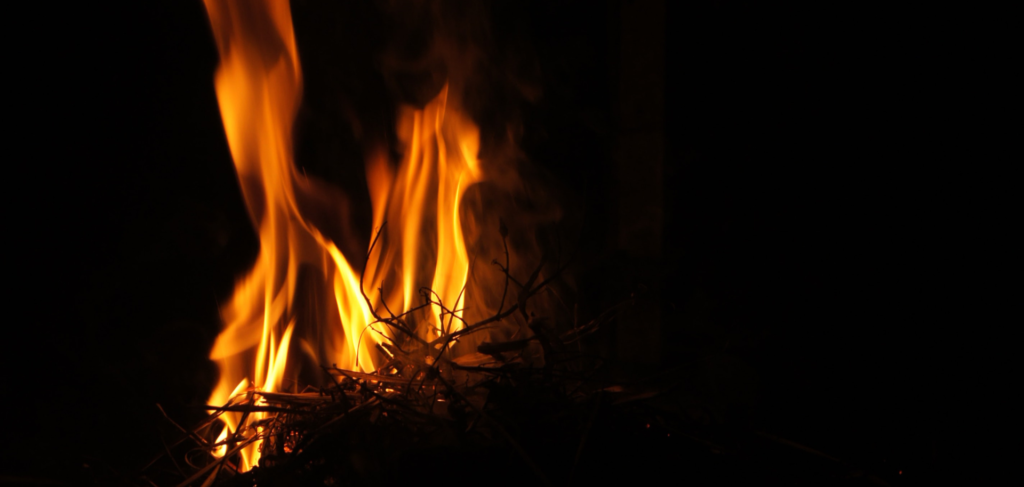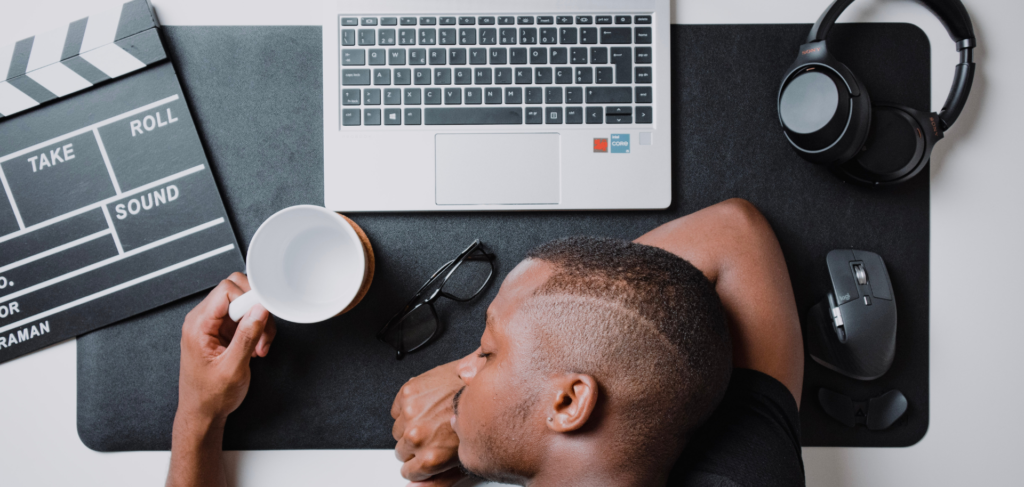
How to Deal with Burnout as an Actor
Burnout is one of the most pressing and concerning concepts to emerge in modern workplaces. It seems to encompass so much, be difficult to notice and even more difficult to escape. What’s more, it appeared to pop up in our vocabularies almost overnight—touted as a new buzzword in the just-pre-COVID world, it seems ubiquitous, now, in an era of work-from-home, side hustle and uncertain employment status. Learning how to deal with burnout as an actor is vitally important, as it feels like something few creatives directly address. For many of them, it’s a simple part of the job to be tired and stressed. It shouldn’t be.
Learning how to deal with burnout as an actor is the only way to ensure a long and healthy career. It is vital that you develop the tools to notice the signs of burnout, and ways in which to combat its progression so that you don’t jeopardise your own mental, physical and emotional wellbeing. You do no good to anybody (let alone yourself) if you’re burnt out.
For actors (and other creatives), it is arguable that burnout is even more difficult to combat, because so much of our practice seems synonymous with the symptoms other professionals are told to identify and avoid. Poor mental health, over-work, fatigue, poor physical health/reliance on substance—not to mention an unhealthy relationship with work that extends well into personal boundaries … doesn’t this just sound like a description of the job? This is an attitude we desperately need to unlearn. So let’s work on fixing burnout for actors before it can begin.
An important note before we continue…
This article is meant to give you some idea of the dangers of burnout, as well as some coping mechanisms you can incorporate into your life. It is, in no way, on par with professional medical advice and should not be treated as your only resource. Do not hesitate to seek help from a general practitioner, psychologist or relevant counsellor if you feel your symptoms worsening. Your local acting union will usually have resources at the ready to help you combat burnout, along with any other relevant mental health concern.
Burnout in the Arts

Or: why do we do this to ourselves?
Really, ask yourself the question. Why do a job so fraught with rejection, mental anguish and uncertainty? Why put yourself through years of drama school where you break yourself down and build yourself up again, just to play make believe? And work two jobs to support your first passion, and do work for free on weekends to build your portfolio?
Of course, we’re not saying that burnout is therefore the artist’s fault. But often the same kinds of things that make us feel burnt out can validate us as artists if we’re not careful—such as being busy, taking on every opportunity, or feeling stressed about that upcoming audition or rehearsal schedule. To learn how to deal with burnout as an actor is to disconnect these negative feelings from feelings of achievement or progress.
Trust us, we do know how hard it is to do so. There are many answers to the question should I become an actor; many of them come down to passion and love for what we do. And we know that such feelings can be powerful motivators! But that’s not to say you should put up with any negative feelings. It (trust us) does not have to be that way. Only fools suffer for their art and think that’s part of the bargain.
Causes of Burnout for Actors
Let’s outline some causes of burnout specific to actors—not an exhaustive list by any means, but a few of the prime offenders. Understanding root causes of burnout can often help you to identify it early, and let you get ahead of it before it throws you into too much chaos and disarray.
Over-commitment to projects.
It’s a big week: you have three auditions your agent wants you to prep for. Not only that, you’re working on that showcase being directed by your sister’s boyfriend’s roommate. Oh, and you’re writing a vehicle for yourself, in those ‘quiet moments’, because if you don’t respect your career, then who will? (Plus your friend wants you to read their screenplay—just when you can, but maybe there’s a part in it for you…)
Over-committing to projects has to be one of the biggest causes of burnout, not only within the acting profession but in the wider creative industry community. Nobody wants to say no to a project; nobody wants to miss out. For many of us, it’s also a matter of not wanting to let somebody down—especially when you know how much each venture means to your collaborators. In those busy times, ask yourself how long you can keep it up. And whether all of these areas are really getting your best.
Increased/doubled workload.
There is an unfortunate perception of actors as freeloaders who add little to society with both hands outstretched. This is, of course, untrue. There are few classes of people in society who work harder than actors! If we’re not doing all that crap we outlined in the above section, we’re working other jobs—usually as casual or contractors—just to keep afloat until that Big Break comes.
By default, most actors have two careers to maintain. This means the immense pressures of such a workload go un-noticed, especially by ‘civilians’ not aware of the mental, emotional and physical toll it can take. If you want to learn how to deal with burnout as an actor, you have to note that this style of living is often necessary … and yet rarely healthy.
Career-related stress.
A.K.A. “The life of an actor.” Acting is a high-stress career, and not only for the reasons outlined above in regards to work and commitments. There’s also the emotional toll taken by constant rejection, the competitive environment—sometimes fighting over career scarps with your closest friends—and the uncertainty of career longevity. Even on a good day, the lack of recognition alone can be tough: few people will see what it takes to work a day as a barista, only to head home and learn lines for an audition the next day.
One of the toughest aspects of an actor’s career is the simple lack of control over one’s life. You can do everything possible to maximise your chances of booking a gig and yet it can all count for nothing. Luck and circumstance prevail. On this point, there simply isn’t much more you can do other than to be aware of it and make your peace.
Limited support in personal relationships.
We’ve touched upon this above, but it warrants some special attention. Your family and friends often won’t ‘get’ the pressures of your career. Even in times that they do, they may not understand why you keep engaging in such activities. Now, we’re not coming for your loved ones, we’re simply saying that that lack of understanding in your personal relationships can be a contributing factor to burnout.
Recognising Signs of Burnout

Burnout can manifest itself in a number of ways. Below, we’ve listed a few of the main ones that are generally agreed upon to signal burnout:
Physical symptoms include fatigue, headaches, stomach and bowel problems, changes in appetite/stress eating. For some individuals, other, related illnesses can recur more frequently, such as tonsilitis or IBS.
Emotional symptoms include exhaustion, irritability, apathy (loss of motivation or caring), a sense of helplessness, increased senses of self-doubt, feeling lonely and cynicism.
Finally, behavioural symptoms. These are often the first places you can recognise burnout in your life, as your increased workload can help you to ignore or discredit physical and emotional symptoms. These include reduced performance in your professional and personal tasks, isolation from social activities, procrastination or reduced efficiency, emotional outbursts in times of high stress and even the use of substances to cope, such as drugs or alcohol.
As with any mental health condition, the symptoms are varied and affect each person differently. Recognising any of the above issues is a good reason to check in with your wider mental health as an actor, and assess if you need more extensive support.
Ways to Combat Burnout
So what can we do? If burnout and being an actor are so closely linked, how can we hope to combat this at all? Before we give you some strategies in coping, let’s get this out of the way. It’s never as simple as “slow down and stop”. If it were that easy, we’d not have this problem! Saying “slow down and stop” is universally terrible advice: it’s like saying “don’t think about pink elephants.” Instead, your goal should be to think about some green elephants. Or any colour you like. We’re not here to stress you out.
Seek support.
Reach out and seek support. This is the best and most effective tool you’ll have when working on how to deal with burnout as an actor. In a work setting, talk to your immediate superior and ask them for any support your workplace can offer. Outside of work, consider talking to a GP or mental health professional. Depending on your location, you may even find a state- or government-sponsored helpline to support mental health.
It also pays to find sympathetic people in your support network: these may not be family and friends, even your partner/spouse. But they could be fellow actors and creatives who understand the pressures of your industry. Find people who know what you’re dealing with, or at the very least understand the problem at hand.
Re-evaluate your options and priorities.
When you feel burnout affecting you, look at how you can make changes to your schedule. Re-evaluate which activities get the bulk of your time, and the priorities you assign to them. Most importantly, find times when you can take breaks and relax, or devote time to areas in your life most lacking. Inevitably, these will be activities such as resting, relaxing or exercising.
This might even be the time to step back, or away completely, from certain obligations. This is never easy, but if you’re burning yourself out, it’s best to cut commitments early than blow a deadline later on. Your collaborators/employers can plan for a replacement with enough notice. If you collapse on set one day due to exhaustion, there’s not much they can do. And that’s to say nothing for your own health and wellbeing!
Learn to say “no” to opportunities.
We have an entire article about when to say no to an acting role. It’s not an easy thing to learn, as it feels like we’re robbing ourselves of opportunities for fame, fortune and recognition. But there are valid reasons to bow out of an opportunity, and burnout is most definitely one of them.
Be honest with yourself: if you feel even remotely burnt out and you take on a fresh opportunity, how much are you going to be able to contribute to that? Even if you’re doing somebody a favour by stepping in as a cover, or helping a friend run lines. Don’t overload yourself with opportunities, for any reason.
Find ways to relax.
This is an important one. Odds are, when you’re feeling busy and stressed, that hobbies and relaxation will be the last thing on your mind! You’ve got stuff to do, goals to kick, hustles to side!!! Change that perception. Find ways to unwind and enjoy yourself, as it can help you relieve tension and avoid crashing later on. Reward yourself. You deserve it!
Even a short break in the middle of a work day will help release your valve and let out some steam. The work you do when you sit back down is always better. Make a cup of tea and disconnect from your obligations, if only for fifteen minutes.
Cultivate good habits in your personal life.
Exercise regularly, eat well and get as much sleep as possible. Like relaxation, these are often the things we feel we can sacrifice when our workload becomes too much. But they’re vitally important to maintaining good health that can get you through times of work and career-related stress.
For actors, the same can be said for routines that keep your acting toolkit honed and ready to go. Practice audition prep, line memorisation, cold reading and script analysis. That way, when you’re not adding to your workload to buff them into shape before a last-minute audition!
Mindfulness.
Mindfulness is a real buzz-word these days—on par with that of “burnout.” But bear with us, because mindfulness is an important thing to maintain in an acting career, especially when burning out is a distinct possibility. Beyond all the hippie/influencer connotations, mindfulness is about maintaining awareness of your thoughts, emotions, general wellbeing as well as your immediate circumstances.
In fact, think of mindfulness as a real-world variation of given circumstances, those guiding principles that keeps a character feeling real in a scene. Check in with yourself, see how you’re feeling and what you’re doing. Can you identify something about yourself or your circumstances that might be threatening, or need modification or change?

Career Longevity
One of the most dangerous aspects of burnout is the fact that its symptoms and causes are cyclical. Stress and overwork typically leads to more stress and more overwork, commitments compound as you start to miss deadlines and reduce your own productivity and effectiveness. All the while, your coping mechanisms become less effective; your support network loses sympathy and the ability to reach you as you dig yourself further and further into a hole. Not fun.
So as you learn how to deal with burnout as an actor, think about your career as a marathon, not a sprint. Burnout is a sign you’re thinking in ‘sprint’ terms, and not for something lasting and substantial. You owe it to yourself to live the life of an actor that is fulfilling and sustainable. It’ll be challenging, for sure! But it should never destroy you in the process.
Just by reading this article, you have taken positive steps. Keep checking in with yourself, keep practicing mindfulness. Remind yourself: just as you’re worth all the good opportunities that will come to you in this life, you’re worth getting them safely and happily.

Leave a Reply